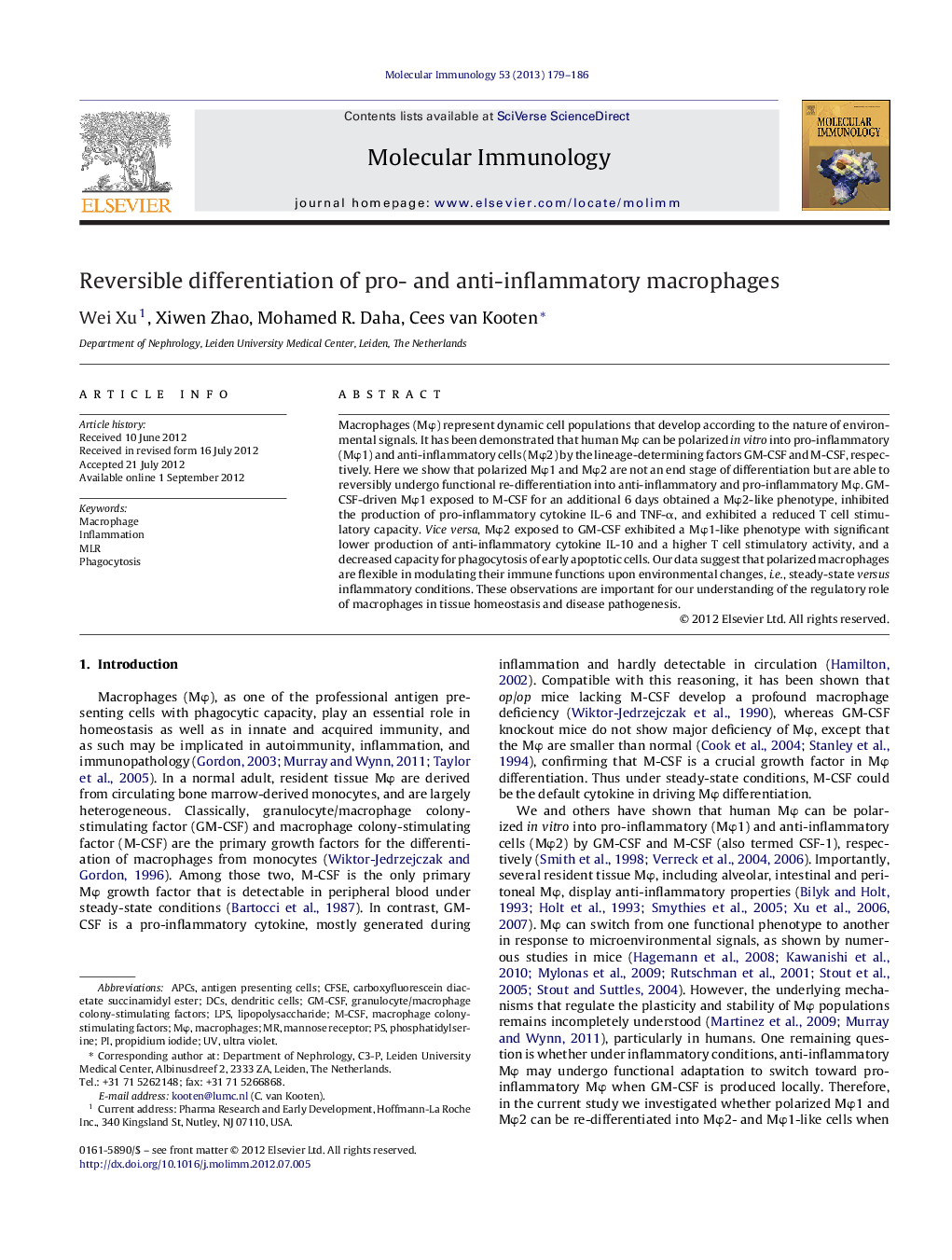| Article ID | Journal | Published Year | Pages | File Type |
|---|---|---|---|---|
| 2831069 | Molecular Immunology | 2013 | 8 Pages |
Macrophages (Mφ) represent dynamic cell populations that develop according to the nature of environmental signals. It has been demonstrated that human Mφ can be polarized in vitro into pro-inflammatory (Mφ1) and anti-inflammatory cells (Mφ2) by the lineage-determining factors GM-CSF and M-CSF, respectively. Here we show that polarized Mφ1 and Mφ2 are not an end stage of differentiation but are able to reversibly undergo functional re-differentiation into anti-inflammatory and pro-inflammatory Mφ. GM-CSF-driven Mφ1 exposed to M-CSF for an additional 6 days obtained a Mφ2-like phenotype, inhibited the production of pro-inflammatory cytokine IL-6 and TNF-α, and exhibited a reduced T cell stimulatory capacity. Vice versa, Mφ2 exposed to GM-CSF exhibited a Mφ1-like phenotype with significant lower production of anti-inflammatory cytokine IL-10 and a higher T cell stimulatory activity, and a decreased capacity for phagocytosis of early apoptotic cells. Our data suggest that polarized macrophages are flexible in modulating their immune functions upon environmental changes, i.e., steady-state versus inflammatory conditions. These observations are important for our understanding of the regulatory role of macrophages in tissue homeostasis and disease pathogenesis.
► Polarization of human macrophages by GM-CSF (M2) and M-CSF (M1) is reversible. ► Proinflammatory functions of GM-CSF-treated macrophages can be reversed by M-CSF. ► Anti-inflammatory functions of M-CSF-treated macrophages can be reversed by GM-CSF.
